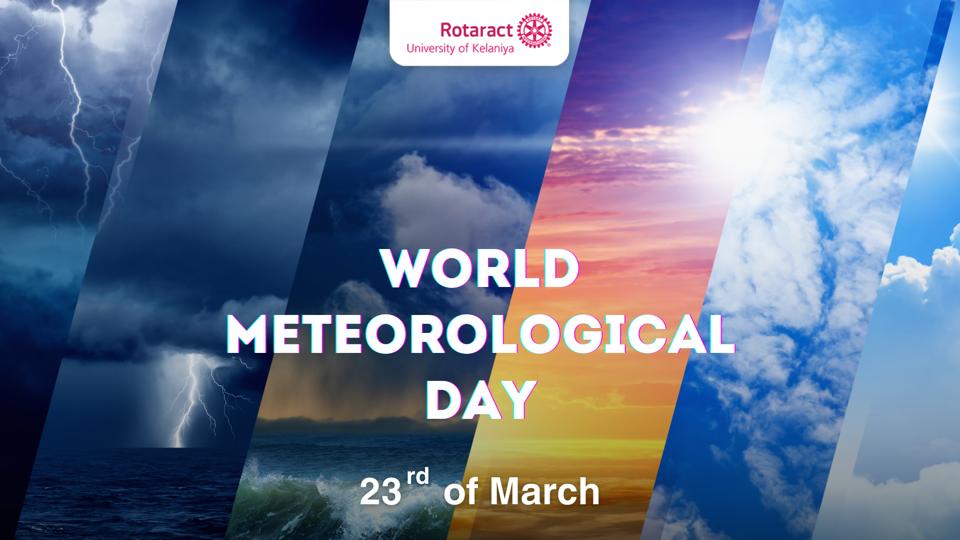World Meteorological Day: At the Frontline of Climate Action
In the intricate dance of Earth’s atmosphere, meteorology unveils its captivating secrets. Like skilled interpreters, meteorologists read the whispers of the wind, the murmurs of the clouds, and the language of the skies. They decode the symphony of nature, translating it into forecasts that guide our daily lives. Meteorology is not merely a science; it is a storybook of the elements, where each gust of wind, each drop of rain, and each ray of sun tells a tale of our planet’s ever-changing moods. Through the lens of meteorology, we gain a deeper appreciation for the harmonious chaos of the natural world, where every cloud holds a mystery waiting to be unravelled.

Every year on the 23rd of March, the global community comes together to celebrate World Meteorological Day. This significant date commemorates the establishment of the World Meteorological Organization (WMO) on March 23, 1950. As we mark this occasion, let’s delve into the importance of meteorology, climate action, and the critical role played by meteorological services worldwide.
The World Meteorological Organization was born out of a collective commitment to enhance global cooperation in meteorology and hydrology. Its mission is to promote scientific understanding, improve weather forecasting, and safeguard societies from natural disasters. Since its inception, the WMO has been at the forefront of advancing meteorological science and services.

This year’s theme for World Meteorological Day is ”At the Frontline of Climate Action.”
Why? Because climate change is no longer a distant threat—it’s a real and undeniable danger to our civilization. The effects of climate change are already visible, and unless we take immediate action, the consequences.
Meteorologists and climate scientists are at the forefront of understanding these changes. They analyze data, model climate scenarios, and provide policymakers with essential information. Their work informs climate adaptation strategies, disaster risk reduction, and sustainable development.
Let’s spread knowledge about climate change and its impact. Educate others on the urgency of climate action. Further supporting policies and practices that reduce greenhouse gas emissions and transition to clean energy are also actions that can be taken. Developing resilient infrastructure, improving early warning systems, and adapting to changing conditions can be done too. It is time we collaborate globally as climate change knows no borders. International cooperation is essential for effective solutions.
On this World Meteorological Day, let’s recognize the dedication of meteorologists, hydrologists, and climate experts. Together, we can be the frontline warriors in the battle against climate change. Our actions today will shape the future of our planet for generations to come.
We’re all in this together. Let’s act now for a sustainable and resilient world!




